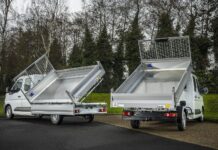
THE Construction Plant-hire Association (CPA) has said the decision to exclude elements of the plant hire industry from the decision to make Full Expensing Allowance permanent is ‘extremely disappointing’ and leaves members ‘unable to take full advantage of the allowance’.
Stu McInroy, chief executive of the CPA, made his remarks in response to UK chancellor Jeremy Hunt’s Autumn Statement.
“CPA members are pivotal to UK business investment and productivity,” Mr McInroy added. “If the government is serious in its desire for the economy to grow, plant hire companies must be afforded the opportunity to take advantage of the changes to the Full Expensing Allowance without restriction.
“We urge the government to bring forward its technical consultation on Full Expensing and engage with our industry as soon as possible. The CPA has to date been a leading member of the treasury’s working group in this area and we are keen to ensure our members are able to benefit fully from the government’s growth agenda.”
Suneeta Johal, CEO of the Construction Equipment Association (CEA), was more positive about the chancellor’s statement, saying his initiatives were ‘positive’ and ‘significant steps towards establishing the UK as a leading player in innovation and sustainable technology’.
“We welcome the chancellor’s initiative to accelerate planning applications, as it could significantly benefit the construction sector by enabling faster project starts and potentially reducing uncertainties,” Suneeta Johal stated. “However, it’s crucial to recognise that while these changes present opportunities, their overall impact on the construction sector will depend on a variety of factors. These include broader economic conditions, the availability of funding, labour and material resources, and environmental considerations.

“The effectiveness of these reforms in truly shortening application times and their actual implementation will be critical in determining their tangible impact on our industry.
“The chancellor’s commitment of an additional £500 million to fund innovation centres, with a focus on AI, is a positive move. This investment not only positions the UK at the forefront of technological advancement but also promises to usher in a new era of efficiency and capability across various industries.
“For the construction equipment sector, advancements in AI can lead to remarkable improvements in machinery intelligence, operational safety, and environmental sustainability. The introduction of a simplified R&D tax relief system is a welcome change. By merging the existing schemes, the government is reducing bureaucratic hurdles, thus encouraging more companies to engage in innovative activities. This consolidation is likely to stimulate a surge in R&D initiatives within the construction equipment industry, fostering new developments in machinery and construction technology.
“The decision to lower the tax rate for loss-making companies within the R&D scheme, and to extend additional support to more SMEs, is another positive step. It shows a clear understanding of the challenges faced by smaller enterprises, which are often the cradles of groundbreaking innovations. In the construction equipment sector, this move could energise numerous SMEs to push the boundaries of what’s possible in equipment design and functionality.
“The extension of the Climate Change Agreement Scheme, offering significant tax relief to energy-intensive businesses, is particularly pertinent. It acknowledges the vital role of industries like steel and ceramics – both crucial to construction equipment manufacturing – in the transition to net-zero emissions. This measure not only aids in immediate financial relief but also incentivises investment in energy efficiency, an area of critical importance for the sustainable evolution of the construction equipment industry.”











